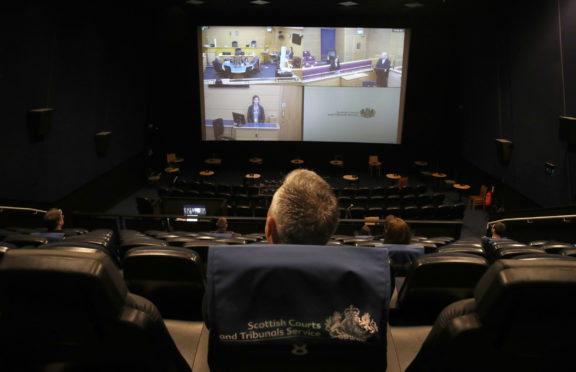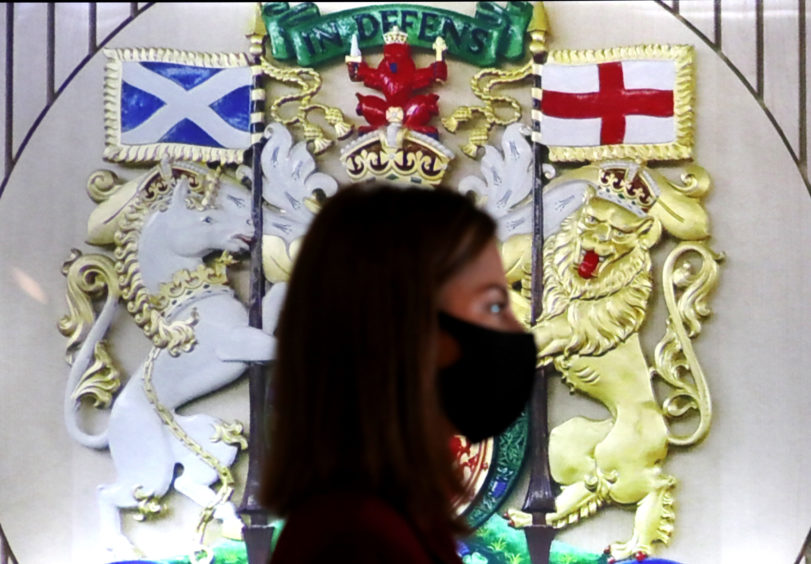
The first trials using a cinema complex to host a jury will begin next week in a bid to address the court case backlog worsened by the coronavirus pandemic.
From Tuesday, some High Court cases sitting in Edinburgh and Livingston will have juries sitting in five screens of the Odeon cinema at Fort Kinnaird retail park in the capital.
Each screen can accommodate 15 physically-distanced jurors, who will feature on a video wall in the courtrooms.
The remote jury centres will initially be in place for six months – after £5.5 million funding from the Scottish Government – but there is an option to extend them for a longer period.
Tim Barraclough, director of the Judicial Office for Scotland, said: “The key priority remains to provide justice in a safe environment.
“The restarting solemn trials working group, chaired by Lady Dorrian, was greatly assisted by representatives from across the justice and third sectors, and thanks goes out to them all for their commitment to ensure that justice is delivered safely.
“It has been an excellent collaborative effort, and the Scottish Courts and Tribunals Service (SCTS) staff have been working extremely hard to ensure that the vision is delivered.”
The cinema screen viewed by jurors is divided into four quadrants showing a general view of the court, the accused, the judge or witness, and the SCTS logo – which can be replaced to show court productions such as physical evidence or CCTV images.
Courts will have the facility to accommodate up to three accused along with their legal representatives.
Before the pandemic there were around 390 High Court trials waiting to be heard – but this nearly doubled to 750 by the end of August.
Mr Barraclough warned the figure will continue to rise unless courts can fully resume.
As part of the six-month contract, the courts will have exclusive access to the jury centre from 8am on Monday to 6pm on Friday.
Equipment will be packed away for the Odeon to return as a functioning cinema every weekend.
Jurors will be provided with packed sandwiches, individual bottles of water and two servings of tea or coffee each day.
Only the 15 jurors selected in court before the trial will arrive at the cinema, with a small number of substitutes, a court officer and technical specialists.
Sanitising stations will be placed at entry and exit points, with floor and wall markings to help the flow of people.
Jurors will be able to take their masks off while seated for the trial itself but must wear them when moving around, including to desks with a microphone system in front of the cinema screen for deliberations.
The families of those involved in trials and the media will be seated in courtrooms, with their numbers dictated by social distancing.
More trials are scheduled for the week of October 12 at another jury centre for the High Court in Glasgow, using 11 screens at the Odeon complex in the Braehead shopping centre, Renfrewshire.
If successful the next step will be to consider how the model can be extended to include sheriff court jury trials.
Justice Secretary Humza Yousaf welcomed the progress, saying: “Next week represents a significant milestone for our criminal justice system as we will see the commencement of the first trial using the jury centre in Edinburgh.
“The Scottish Government has provided £5.5 million funding for these remote High Court jury centres which allow many of the most serious criminal cases to proceed, providing assurance to victims, witnesses and accused who have been adversely affected by case delays due to the many challenges presented by Covid-19.
“Work is ongoing to consider what further actions may be required to address the backlog of criminal cases in a way which safeguards the interests of both public health and of justice.”

Enjoy the convenience of having The Sunday Post delivered as a digital ePaper straight to your smartphone, tablet or computer.
Subscribe for only £5.49 a month and enjoy all the benefits of the printed paper as a digital replica.
Subscribe © PA
© PA